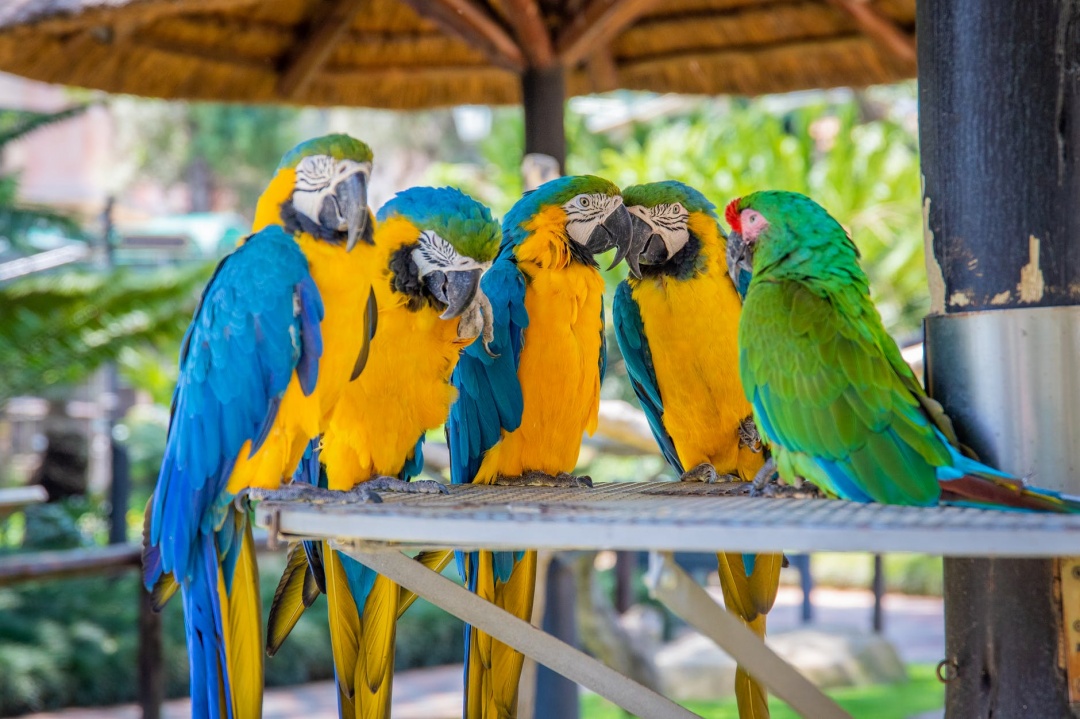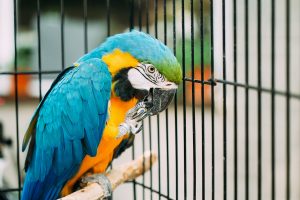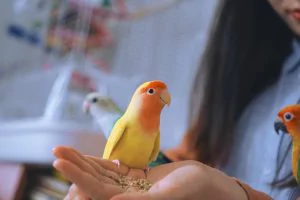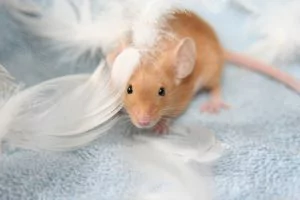If you’re looking to get a pet bird, you might be intrigued at the idea of getting a parrot. While many admirable things to be said about parrots, many misconceptions are floating around, and these might be holding you back from getting this particular bird.
Parrots don’t typically scream, bite and make a mess as people say. The following fun facts should help
clear up these and other misconceptions so you’ll get off on the right foot with parrots.
1. Parrots are a species
Obviously, parrots are different from dogs and other species, but it’s possible you don’t realize the extent of the differences. While dogs, varied as they are, all fall under one species (Canis familiaris), parrots form their own species. All the different breeds of dogs fall under the same species, but there are hundreds of different parrot species.
The significance of this fact is astounding because you cannot make generalizations about the different types of parrots as you would for a dog or cat. This is evident by the differences in parrot species like cockatoos, macaws, and African greys. They differ in size, shape, and color and their body language, habitats, and nutritional needs.
2. Parrots are not domestic
While dogs and cats have been bred for domestic purposes, parrots are traditionally wild animals. Apart from cockatiels and budgies, most parrot species are not particularly bred for their temperament, color, or features. While dogs have been domesticated, parrots are tamed to coexist with humans.
The difference is that domesticated animals are trained to develop characteristics that suit our lifestyles. However, when parrots are tamed and caged, they still exhibit all the habits they demonstrate in the wild. Don’t expect your parrot to be as intuitive or to adjust to your lifestyle as your furry friend.
3. Parrots are not predictable
Dogs and cats exhibit signs that you could easily interpret. For instance, a dog shows he’s happy when he’s wagging his tail, and a cat will hiss when he’s displeased, but how do you decide when your parrot is happy or sad? It’s difficult to read beaks and feathers, but with time and careful observation, you might be able to pick up a few cues from your feathered friend.
4. A parrot’s diet is not simple
Don’t think for a moment that you’ll get away with feeding your parrot seed and water. A healthy parrot needs variety in its diet. Therefore, you must be prepared to provide various nuts, grub, fruits, and foliage. Some parrots may even need small amounts of soil and certain plants to get the nutrition they need.
This means you’ll have to do extensive research before choosing a parrot; it will help you work out the cost of ownership and protect the bird since some foods are fatal to parrots.
5. Parrots have complex bodies
Finding a vet for your parrot might not be an easy task because a parrot’s physiology is not as straightforward as a mammal, such as a dog or a cat. Their sensitive respiratory systems and fine bone structure make them prone to specific complications. These complications are sometimes difficult and expensive to treat.
If you find a vet specializing in bird physiology, you will definitely pay more than you would pay a traditional vet. Keep this in mind when you’re calculating the cost of pet ownership.
6. Parrots have an amazing brain
Apart from their complex bodies, parrots also have complex minds. Their feathered heads are not filled with fluff, and the term “bird brain” doesn’t apply to parrots. Keep this in mind when you’re tempted to amuse your parrot with a few random toys. Parrots are very interactive in the wild, so they need similar activities in domestic settings.
Give him some time outside the cage daily, and find activities to keep him engaged. Activities that encourage foraging will keep your parrot happy for hours on end.
7. Parrot training is essential
Training is not optional when you have a new pet parrot. It’s the only way you’ll be able to have real interactions with your bird. Invest some time to teach your parrot a few tricks.
Reward him with treats when he demonstrates behaviors you approve of, and you’ll have a pet that enjoys interacting with the entire household.
8. A parrot is a long-term commitment
With proper care and nutrition, your parrot will live for many years. Therefore, you should have a plan to accommodate your parrot through all your life’s changes. For instance, you’ll have to prepare to take your parrot along when you move to a new city, get a new job or another pet, or start a new life with a spouse and children.
Prepare your parrot for every new change, and teach him valuable life skills that will help him adapt to each change.
9. We’ll never know all there is to know about parrots
While research has provided a lot of new information about parrots, there’s a lot more to learn. New information is always available, so make sure to keep up as aviculturists provide more information on parrots’ behaviors, nutrition, and physiology.
10. Parrots are fun
Caring for parrots involves a tremendous amount of work, but it’s all worth it. A healthy and happy parrot is a lot of fun for both adults and children. So stop taking yourself so seriously and have some fun with your feathered friend.









Comments